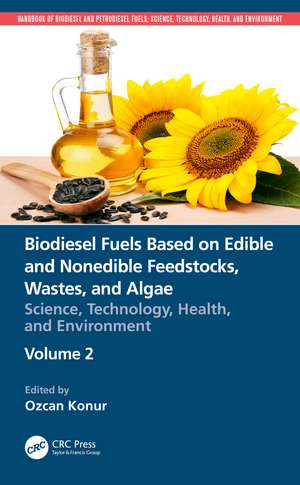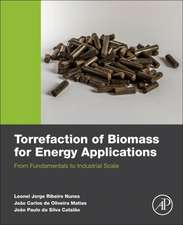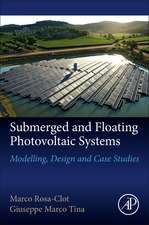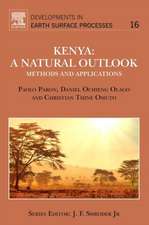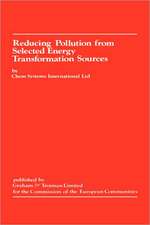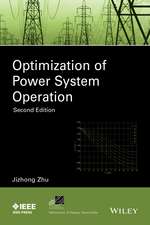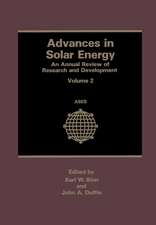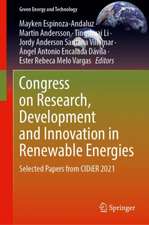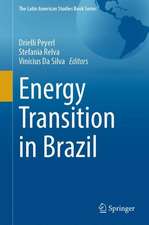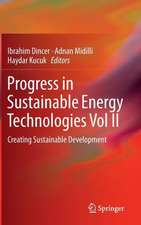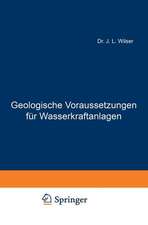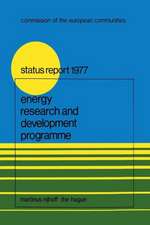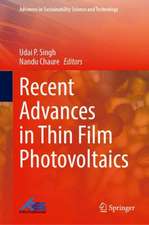Biodiesel Fuels Based on Edible and Nonedible Feedstocks, Wastes, and Algae: Science, Technology, Health, and Environment: Handbook of Biodiesel and Petrodiesel Fuels
Editat de Ozcan Konuren Limba Engleză Hardback – 6 mai 2021
The research on feedstocks for biodiesel fuels has first focused on the edible oils as first-generation biodiesel fuels. However, the public concerns about the competition with foods based on these feedstocks and adverse impact on the ecological diversity and deforestation have resulted in the exploration of nonedible-oil-based biodiesel fuels as second-generation biodiesel fuels in the first instance.
Due to the ecological and cost benefits of treating wastes, waste oil-based biodiesel fuels as third-generation biodiesel fuels have emerged. Furthermore, following a series of influential review papers, the research has focused on the algal oil-based biodiesel fuels in recent years. Since the cost of feedstocks in general constitutes 85% of the total biodiesel production costs, the research focused more on improving biomass and lipid productivity in these research fields. Furthermore, since water, CO2, and nutrients (primarily N and P) have been major ingredients for the algal biomass and lipid production, the research has also intensified in the use of wastewaters and flue gases for algal biomass production to reduce the ecological burdens and the production costs.
Part 1 presents a representative sample of the population papers in the field of edible oil-based biodiesel fuels covering major research fronts. It covers soybean oil-based biodiesel fuels, palm oil-based biodiesel fuels, and rapeseed oil-based biodiesel fuels as case studies besides an overview paper.
Part 2 presents a representative sample of the population papers in the field of nonedible oil-based biodiesel fuels covering major research fronts. It covers Jatropha oil-based biodiesel fuels, polanga oil-based biodiesel fuels, and moringa oil-based biodiesel fuels as case studies besides an overview paper.
Part 3 presents a representative sample of the population papers in the field of waste oil-based biodiesel fuels covering major research fronts. It covers wastewater sludge-based biodiesel fuels, waste cooking oil-based biodiesel fuels, and microbial oil-based biodiesel fuels as case studies besides an overview paper.
Part 4 presents a representative sample of the population papers in the field of algal oil-based biodiesel fuels covering major research fronts. It covers algal biomass production in general, algal biomass production in wastewaters, algal lipid production, hydrothermal liquefaction of algal biomass, algal lipid extraction, and algal biodiesel production besides an overview paper.
This book will be useful to academics and professionals in the fields of Energy Fuels, Chemical Engineering, Physical Chemistry, Biotechnology and Applied Microbiology, Environmental Sciences, and Thermodynamics.
Ozcan Konur is both a materials scientist and social scientist by training. He has published around 200 journal papers, book chapters, and conference papers. He has focused on the bioenergy and biofuels in recent years. In 2018, he edited ‘Bioenergy and Biofuels’, that brought together the work of over 30 experts in their respective field. He also edited ‘Handbook of Algal Science, Technology, and Medicine’ with a strong section on the algal biofuels in 2020.
| Toate formatele și edițiile | Preț | Express |
|---|---|---|
| Paperback (1) | 441.75 lei 6-8 săpt. | |
| CRC Press – 25 sep 2023 | 441.75 lei 6-8 săpt. | |
| Hardback (1) | 1115.51 lei 6-8 săpt. | |
| CRC Press – 6 mai 2021 | 1115.51 lei 6-8 săpt. |
Preț: 1115.51 lei
Preț vechi: 1360.38 lei
-18% Nou
Puncte Express: 1673
Preț estimativ în valută:
213.48€ • 231.81$ • 179.32£
213.48€ • 231.81$ • 179.32£
Carte tipărită la comandă
Livrare economică 22 aprilie-06 mai
Preluare comenzi: 021 569.72.76
Specificații
ISBN-13: 9780367456153
ISBN-10: 036745615X
Pagini: 418
Ilustrații: 62 Tables, black and white; 50 Illustrations, color; 150 Illustrations, black and white
Dimensiuni: 156 x 234 x 28 mm
Greutate: 0.64 kg
Ediția:1
Editura: CRC Press
Colecția CRC Press
Seria Handbook of Biodiesel and Petrodiesel Fuels
ISBN-10: 036745615X
Pagini: 418
Ilustrații: 62 Tables, black and white; 50 Illustrations, color; 150 Illustrations, black and white
Dimensiuni: 156 x 234 x 28 mm
Greutate: 0.64 kg
Ediția:1
Editura: CRC Press
Colecția CRC Press
Seria Handbook of Biodiesel and Petrodiesel Fuels
Public țintă
Academic and Professional Practice & DevelopmentCuprins
Part 5: Edible oil-based biodiesel fuels.
21. Edible oil-based biodiesel fuels: A scientometric review of the research.
22. Chemistry of biodiesel fuels based on soybean oil.
23. Palm oil-based biodiesel fuels: A review of the research.
24. Rapeseed oil-based biodiesel fuels: A review of the research.
Part 6: Nonedible oil-based biodiesel fuels.
25. Nonedible oil-based biodiesel fuels: A scientometric review of the research.
26. An exhaustive study on the use of Jatropha based biodiesel for modern diesel engine applications.
27. The effects of additives with Calophyllum inophyllum methyl ester in CI engine applications.
28. Moringa oleifera oil as a potential feedstock for sustainable biodiesel production.
Part 7: Waste oil-based biodiesel fuels.
29. Waste oil-based biodiesel fuels: A scientometric review of the research.
30. Biodiesel production from municipal wastewater sludge: recent trends.
31. Heterogeneous acid-catalysts for biodiesel production from waste cooking oil.
32. Microbial biodiesel fuels production using microbes.
Part 8: Algal biodiesel fuels.
33. Algal biodiesel fuels: A scientometric review of the research.
34. Algal biomass production for biodiesel production: A review of the research.
35. Algal biomass production in wastewaters for biodiesel production: A review of the research.
36. Algal lipid production for biodiesel production: A review of the research.
37. Biooil Production from microalgae: Current status and future perspective.
38. Extraction of algal neutral lipids for biofuel production.
39. Microalgal biodiesel production.
21. Edible oil-based biodiesel fuels: A scientometric review of the research.
22. Chemistry of biodiesel fuels based on soybean oil.
23. Palm oil-based biodiesel fuels: A review of the research.
24. Rapeseed oil-based biodiesel fuels: A review of the research.
Part 6: Nonedible oil-based biodiesel fuels.
25. Nonedible oil-based biodiesel fuels: A scientometric review of the research.
26. An exhaustive study on the use of Jatropha based biodiesel for modern diesel engine applications.
27. The effects of additives with Calophyllum inophyllum methyl ester in CI engine applications.
28. Moringa oleifera oil as a potential feedstock for sustainable biodiesel production.
Part 7: Waste oil-based biodiesel fuels.
29. Waste oil-based biodiesel fuels: A scientometric review of the research.
30. Biodiesel production from municipal wastewater sludge: recent trends.
31. Heterogeneous acid-catalysts for biodiesel production from waste cooking oil.
32. Microbial biodiesel fuels production using microbes.
Part 8: Algal biodiesel fuels.
33. Algal biodiesel fuels: A scientometric review of the research.
34. Algal biomass production for biodiesel production: A review of the research.
35. Algal biomass production in wastewaters for biodiesel production: A review of the research.
36. Algal lipid production for biodiesel production: A review of the research.
37. Biooil Production from microalgae: Current status and future perspective.
38. Extraction of algal neutral lipids for biofuel production.
39. Microalgal biodiesel production.
Notă biografică
Ozcan Konur is both a materials scientist and social scientist by training. He has published around 200 journal papers, book chapters, and conference papers. He has focused on the bioenergy and biofuels in recent years. In 2018, he edited ‘Bioenergy and Biofuels’, that brought together the work of over 30 experts in their respective field. He also edited ‘Handbook of Algal Science, Technology, and Medicine’ with a strong section on the algal biofuels in 2020.
Descriere
The handbook covers the major research of petrodiesel and biodiesel fuels. This second volume focuses on biodiesel fuels based on the four generations of feedstocks: edible feedstocks, nonedible feedstocks, waste feedstocks, and algae.
